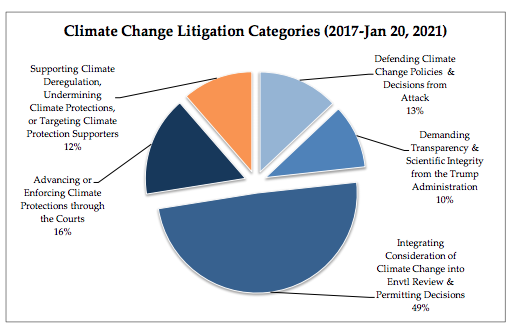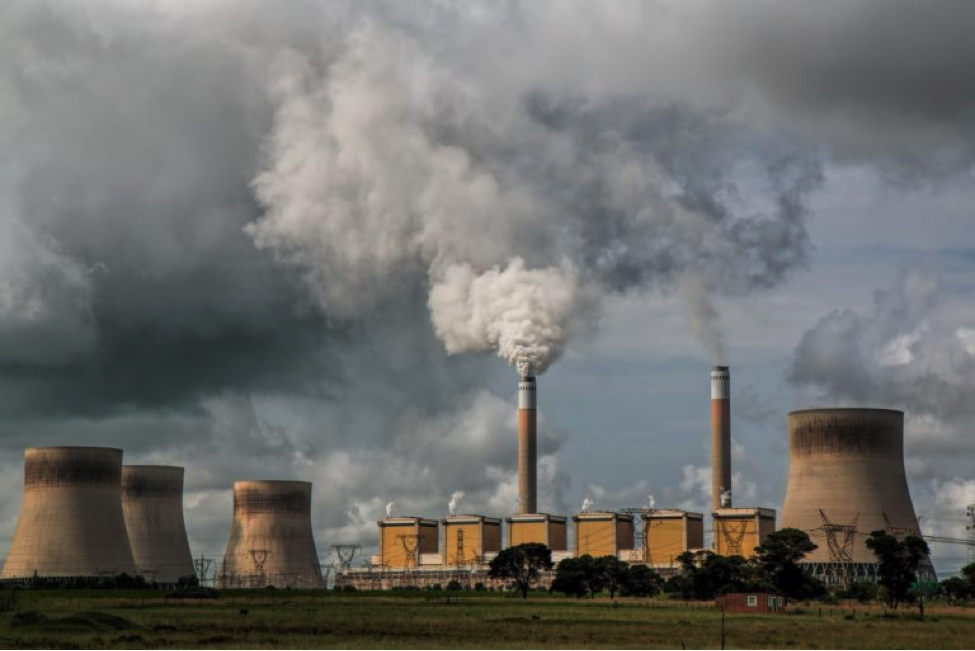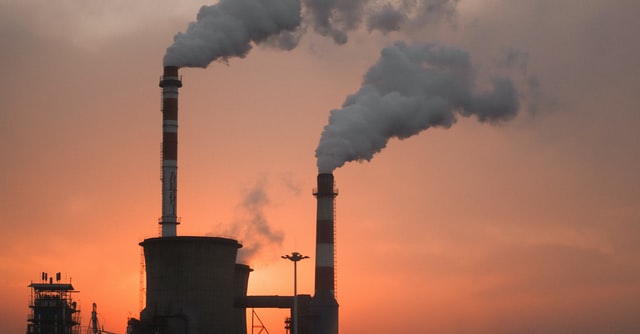The Sabin Center for Climate Change Law posted its Winter/Spring 2021 Semi-Annual Report, which includes a summary of the Center’s key activities between January and May 2021. It is available for download here. Below are some highlights from the report: With the Biden-Harris administration in office since January 2021, the […]
Tiffany Challe-Campiz
By Korey Silverman-Roati Litigators responded to the Trump administration’s climate deregulation agenda by filing hundreds of lawsuits across the U.S. over the four years of the administration. A new Sabin Center White Paper published today, U.S. Climate Litigation in the Age of Trump: Full Term, takes stock of 378 U.S. […]
By Maria Antonia Tigre* Over the last year Brazil has seen numerous innovative climate litigation claims filed that have questioned the country’s climate policies and general effects of activities on climate change. (I wrote about some of those here and here.) The Amazon rainforest, the country’s not-so-secret weapon to mitigate […]
by Matteo Fermeglia, Catherine Higham, Korey Silverman-Roati and Joana Setzer* Climate litigation is now established as a critical part of domestic climate governance regimes. While domestic climate litigation is still the most notorious form of climate-related dispute resolution, arbitration and mediation are becoming important means of resolving climate-related disputes. However, the […]
by Iva Lea Aurer* The historic judgment rendered by the District Court of the Hague on May 26, 2021 represents a new understanding of corporate liability in regards to the risk of harm caused by their contribution to climate change. The court ordered Royal Dutch Shell (“RDS”) to reduce its […]
By Christoph Schwarte* In 1978, during a phase of the Cold War when relationships between East and West began to relax, the United States and 4 other nuclear powers (China, France, the Soviet Union and the UK) made unilateral declarations granting security assurances to non-nuclear- weapon states. Speaking on behalf […]
By Michael Burger* On April 1, 2021, a unanimous Second Circuit panel dismissed a lawsuit filed by New York City against a handful of fossil fuel companies seeking damages for climate change harms under state public nuisance and trespass law. (The opinion and other case materials are available here.) The […]
President Biden, National Climate Advisor Gina McCarthy and many others in the administration leadership have touted its highly ambitious, whole-government approach to taking the climate crisis. In the administration’s first three months, we have already seen this begin to take shape. Yet, even as global leaders convene for President Biden’s Earth Day climate summit to make major announcements about new climate pledges, the international community, still recovering from four years of Donald Trump’s climate denial and disengagement, has begun to push back, at least in places, against the idea of U.S. leadership in the climate policy space. The question they raise is a good one: Can Biden’s climate policies last, even if an anti-regulation, anti-science, anti-environment president once again sits in the White House?







